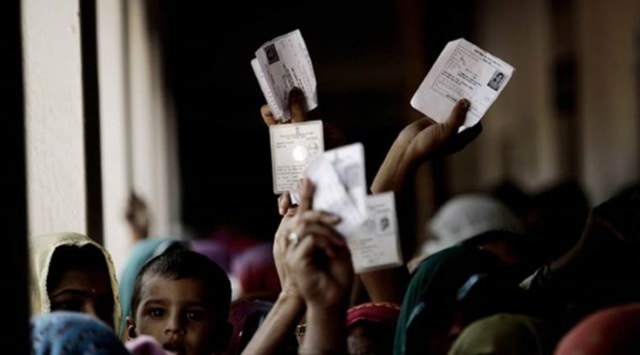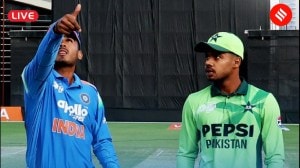A Parliamentary panel on Friday recommended lowering the minimum age for contesting an Assembly election from 25 years to 18 years, saying it would widen the viewpoints in policy debates, thereby improving the credibility of the political process.
The Parliamentary Standing Committee on Personnel, Public Grievances, Law and Justice presented its report on “aspects of election process and their reform” to the Rajya Sabha. The panel, which is chaired by BJP MP Sushil Kumar Modi, also cautioned the government and the Election Commission on their proposal for a common electoral roll for Parliamentary, Assembly and local body elections, saying that the principles of federalism should be adhered to. The committee also recommended increasing the punishment for a candidate filing a false affidavit from six months to up to two years and a fine, depending on the severity of the offence.

“The committee observes that reducing the minimum age requirement for candidacy in elections would give young individuals equal opportunities to engage in democracy. This viewpoint is reinforced by a vast amount of evidence, such as global practices, the increasing political consciousness among young people and the advantages of youth representation,” the report read.
The report said political parties had in the past favoured experienced candidates for public office, while dismissing younger candidates as lacking in experience.
“This belief suggests that political competence comes with age, a notion that Plato argued for over two thousand years ago. However, in the 21st century, this belief is increasingly being considered outdated. Due to increased education, globalisation and digitalisation, younger individuals are now more than capable of running for office in all countries,” the committee said.
The committee said it was disconcerting that 47% of MPs in 2019 were over the age of 55, as per PRS Legislative Research, while India’s median age was 27.9 years.
The Election Commission, however, did not agree with the need to change the minimum age. In its input to the committee, the poll panel said it has considered the issue and found it unrealistic to expect 18-year-olds to “possess the necessary experience and maturity for these responsibilities”.
Story continues below this ad
“The committee also observes that surveys indicate that youth globally have significant political awareness and knowledge. This is evident through youth-led movements such as Fridays for Future and March for Our Lives, highlighting their capacity to rally and champion critical social and political concerns,” the report said.
On the issue of common electoral roll, which was first proposed by the Election Commission to the government in 1999, the committee said the Constitution entrusts the responsibility of making the electoral roll for Parliamentary and Assembly elections to the EC and for local body polls to the respective state election commissions.
“The committee advises the government to proceed with caution, adhere to the principles of federalism enshrined in the Constitution, and carefully assess the potential consequences before taking any actions. The committee suggests that the Election Commission should be careful and avoid overstepping its boundaries into the State’s domain. Instead, the commission should aim to propose a solution that benefits all the parties involved,” the report said.
The report noted that 30 states and Union Territories used the ECI’s electoral rolls as a draft and then invited public claims and objections before finalising their rolls for local body elections. Some states like Uttar Pradesh, Uttarakhand and Kerala do not use the EC data. The poll panel has said using a common electoral roll would improve efficiency and reduce expenses.
Story continues below this ad
ExplainedResponsible age for leadership?
The Election Commission has not agreed with the need to change the minimum age. In its input to the Parliamentary committee, the poll panel said it has considered the issue and found it unrealistic to expect 18-year-olds to “possess the necessary experience and maturity for these responsibilities”.
Some of the committee members expressed doubt about the linking of Aadhaar and Voter IDs of non-citizens. The EC had started collecting Aadhaar details on a voluntary basis last year. The committee suggested that the EC establish a legal provision or alternative to make sure that non-citizens who have Aadhaar are not included on the electoral rolls.
“Additionally, citizens who have not yet linked their Aadhaar should be assured that they can still exercise their legal right to vote,” the report said.
The committee had invited comments from national political parties on the various issues before it, including the EC’s proposal for remote voting for internal migrants. However, the report does not include recommendations on the topic. Only the Aam Aadmi Party (AAP) and the Communist Party of India (Marxist) (CPI-M)replies had been received. In its response, the AAP said the common electoral roll would save effort and money, but there should not be a “blanket obligation” on state election commissions to adopt the EC’s roll. On the poll panel’s remote voting proposal, the AAP said there had been no study of the migrant population in the country and the proposal at this stage had many drawbacks. The party supported reducing the minimum age for candidates, suggesting 21 or 18 for the Lok Sabha and 25 for the Rajya Sabha.
The CPI(M) said the common electoral roll proposal could be a move “towards centralisation of the entire election process and is fraught with dangers”. The party, in its submission to the committee, supported reducing the minimum age for candidates. It also asked the committee to recommend scrapping of electoral bonds.









